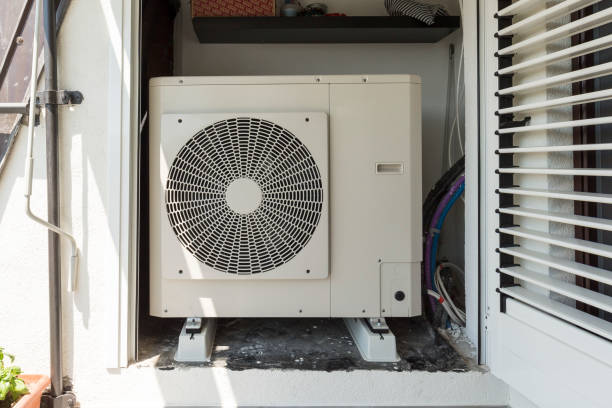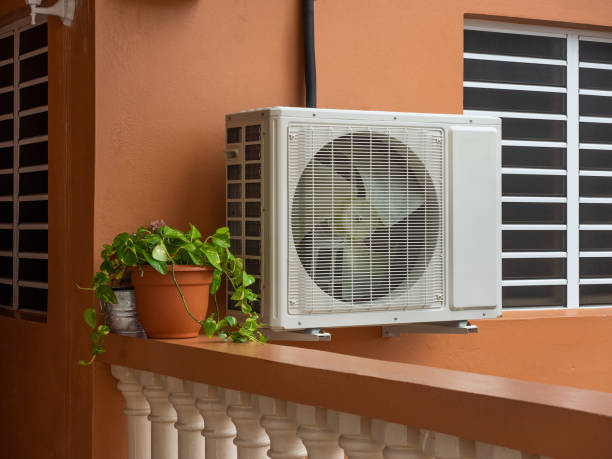Heat pumps and gas boilers are both popular options for heating homes and providing hot water, but they operate in different ways and have their own unique benefits and drawbacks. Heat pumps use electricity to transfer heat from the air or ground into a building, while gas boilers burn fuel, such as natural gas or propane, to generate heat.
Understanding the differences between these two options can help homeowners choose the most appropriate and cost-effective heating system for their needs. In this comparison, we will explore the pros and cons of heat pumps and gas boilers, as well as the factors that influence their running costs and overall efficiency.
Heat Pump vs Gas Boiler
Heat pumps have a lower flow temperature than a gas boiler, which means that they use less energy to provide the same level of heating. This can make them cheaper to operate, particularly if the house is well-insulated. Heat pumps run on electricity, while gas boilers burn gas to generate heat. Because heat pumps don’t burn fossil fuels, they are a more environmentally friendly option compared to gas boilers.

Advantages a heat pump has over a gas boiler
Energy efficiency
Heat pumps are typically more energy efficient than gas boilers, as they use electricity to transfer heat rather than burning fuel to generate heat. There is always some energy lost when burning fossil fuels. This means that they can provide the same level of heating with less energy, resulting in lower energy bills for homeowners.
Environmental benefits
Heat pumps do not emit carbon dioxide or other harmful pollutants, making them a more environmentally friendly option compared to gas boilers, which release greenhouse gases into the atmosphere.
Versatility
Heat pumps can be used for both heating and cooling, making them a more versatile option compared to gas boilers, which are only used for heating.
Long lifespan
Heat pumps have a longer lifespan than gas boilers, typically lasting around 20 years compared to 10-15 years for a gas boiler. This is because they have less moving parts inside them.
Quiet operation
Heat pumps are generally quieter than gas boilers, as they do not require a burner or any other noisy mechanical parts. The fan is situated outside so house occupants don’t hear it all, and the noise level is also very small.
No fuel storage required
Heat pumps do not require the storage of fuel, such as natural gas or propane, which can be an issue for gas boilers. This means that there is no risk of fuel spills or leaks, and heat pumps do not need to be refilled or replenished like gas boilers do.
Easy installation
Heat pumps are relatively easy to install, as they do not require the installation of a chimney or other specialized equipment. In contrast, gas boilers require the installation of a flue, which can be a more complex and costly process.
Low maintenance
Heat pumps require minimal maintenance, as they do not have any moving parts that can wear out over time. In contrast, gas boilers require regular maintenance to ensure that they are operating safely and efficiently.
Comfort
Heat pumps can provide a more consistent and comfortable level of heat, as they do not produce the fluctuations in temperature that can occur with gas boilers.
Safety
Heat pumps do not produce any harmful by products, such as carbon monoxide, making them a safer option compared to gas boilers.

Replacing a gas boiler with a heat pump
Installing a heat pump in a home that currently has a gas boiler for heating will typically involve the following steps:
1. Determine the size and type of heat pump
That is appropriate for your home. This will depend on factors such as the size of your home, your climate, and your heating and cooling needs.
2. Choose a location for the heat pump
The heat pump will need to be installed outdoors, typically on the side of the house or in the yard. It should be located in a place that is easily accessible for maintenance and repair, and it should be well-ventilated to allow for proper heat dissipation.
3. Install the heat pump unit
This will typically involve mounting the unit on a concrete slab or mounting bracket, and running electrical and refrigerant lines to and from the unit.
4. Install the indoor air handler
The air handler will be installed inside the home, usually in a basement, utility room, or attic. It will be connected to the heat pump unit with electrical and refrigerant lines.
5. Install the thermostat
The thermostat will be installed in a convenient location in the home, usually on a wall in a central area. It will be connected to the heat pump and air handler with electrical wiring.
6. Test the system to ensure it is functioning properly
This will typically involve turning on the heat pump and adjusting the thermostat to ensure that the system is heating and cooling the home as intended.
7. Disconnect and remove the gas boiler
Once the heat pump is installed and functioning properly, the gas boiler will no longer be needed and can be disconnected and removed.
It is important to note that the process of installing a heat pump will vary depending on the specific type of heat pump and the layout of your home. It is typically best to hire a licensed and experienced technician to handle the installation to ensure that it is done safely and correctly.

Heat pump versus gas boiler cost comparison
Heat pumps are generally more energy efficient than gas boilers, so they tend to have lower operating costs. The actual cost difference will depend on a variety of factors, including the size and efficiency of the heat pump and gas boiler, the local climate, the cost of electricity and gas in your area, and your home’s heating and hot water needs.
To compare the running costs of a heat pump and a gas boiler, you will need to consider the following factors:
Energy efficiency: The efficiency of the heat pump or gas boiler will affect how much energy it consumes to provide the same level of heating. A more efficient system will use less energy and therefore have lower operating costs.
Fuel costs: The cost of electricity and gas in your area will also impact the running costs of a heat pump and gas boiler. If electricity rates are low in your area, a heat pump may have lower operating costs compared to a gas boiler. However, if gas prices are lower, a gas boiler may be more cost-effective.
Heating and hot water demand: The size and efficiency of the heat pump or gas boiler should be matched to the heating and hot water demand of your home. If the system is too small, it will have to work harder to meet your heating and hot water needs, which will increase operating costs.
On the other hand, if the system is too large, it will be less efficient and also have higher operating costs.
Maintenance and repair costs: Both heat pumps and gas boilers require some level of maintenance and may need to be repaired from time to time. The costs of these services will need to be factored into the overall operating costs of the system.
To get a more accurate comparison of the running costs of a heat pump and a gas boiler, you should consult with a heating and cooling professional or use a cost calculator to estimate the costs based on your specific circumstances.
Read related articles:
- What Size Heat Pump Does My House Need? A Guide
- Air Conditioner vs Heat Pump: Which One To Choose?
- Heat Pump Systems: Find How They Work And The Types!
*The information in this article should be used for general guidance only and not as financial or health advice. Full details are on the link in the footer to our disclaimer page. Always discuss your requirements with a competent and suitably qualified professional before undertaking any work.
